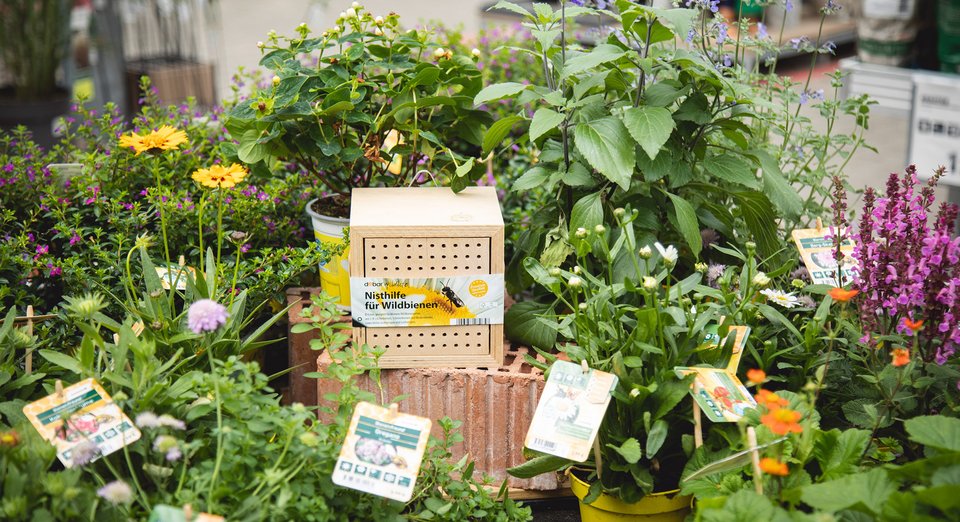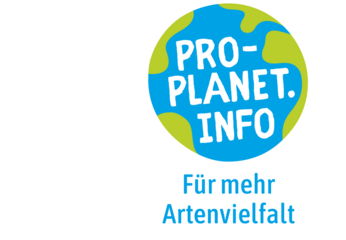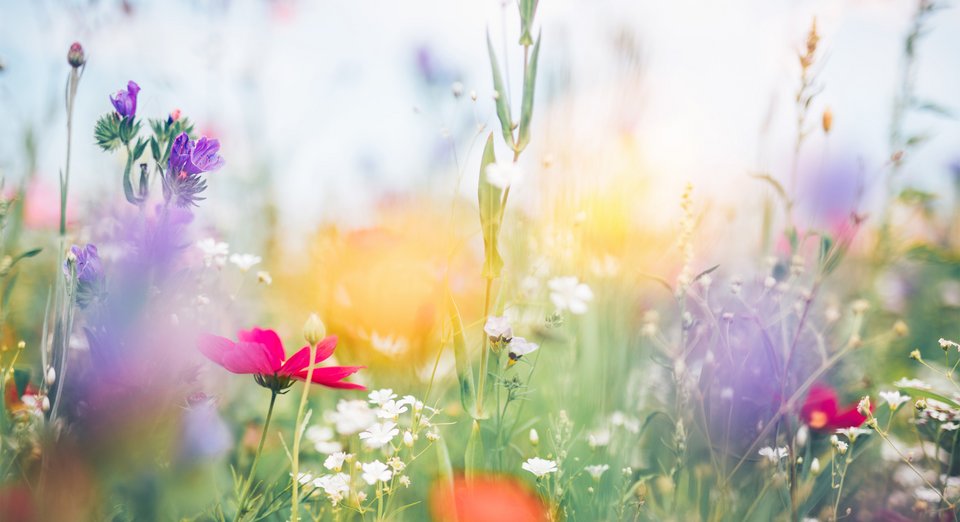
After 2021 and 2022, BUND has once again analysed bee-friendly plants in stores for pesticide residues. Of the seven garden centres and DIY stores examined, toom was the only one that did not detect any bee-harmful pesticides on plants advertised as bee-friendly. We spoke to Ribanna Jansen, Project Manager Sustainability at toom, about the "beneficial bee-friendly" range, the different needs of beneficial insects and quality control at toom.
 Dominique Rotondi
"The consistent implementation of our strategic orientation is bearing fruit. Because insect protection concerns us all! We are delighted that we at toom can offer our customers plants that have been proven not to contain any pesticides that are harmful to bees and therefore enable more sustainable gardening," explains Dominique Rotondi.
Dominique Rotondi
"The consistent implementation of our strategic orientation is bearing fruit. Because insect protection concerns us all! We are delighted that we at toom can offer our customers plants that have been proven not to contain any pesticides that are harmful to bees and therefore enable more sustainable gardening," explains Dominique Rotondi.
Back in 2015, toom phased out pesticides that are particularly harmful to bees and initially introduced the bee-friendly range the following year, which was replaced by the current "beneficial insect-friendly" range in 2021.
The "beneficial insect-friendly" range helps customers make better and faster choices. This not only makes toom the first Baumarkt DIY store to have its insect-friendly range externally assessed, but also takes on a pioneering role with its differentiation according to beneficial insects. The use of any active substances that are harmful to bees is prohibited in the production of these plants.
in addition, toom has been conducting intensive residue monitoring in plant production since 2015. Toom also works together with GLOBAL 2000 in the area of pesticides. The aim of the cooperation is to analyse the entire range of pesticides for risks to humans and animals. As a result of the screening, toom has already discontinued 22 items in 2022 and replaced them with more environmentally friendly alternatives.
 Ribanna Jansen
one: How large is the "beneficial insect-friendly" range at toom?
Ribanna Jansen
one: How large is the "beneficial insect-friendly" range at toom?
Ribanna Jansen: The toom range of beneficial plant-friendly products currently comprises 156 items. As part of this range, we offer our customers beneficial plant-friendly perennials, herbs and flower bulbs.
one: Which plants are actually "beneficial insect-friendly"? Or to put it another way: aren't all garden plants good for insects in some way?
Ribanna Jansen: We have to differentiate a little here. In general, a planted garden is of course much better for biodiversity than a rock garden, for example. However, not all plants are automatically beneficial insect-friendly. First of all, it is important to realise that the various pollinating insects, which are particularly dependent on flowering plants, have different needs. In Germany alone, there are over 600 different species of wild bees, some of which are highly specialised and only fly to very specific plants or varieties to collect food for themselves and their brood. Due to the decline in plant diversity in nature, the lack of suitable nesting sites and building materials and the use of pesticides in agriculture that are harmful to pollinators, many of these wild bees are unfortunately now endangered and threatened with extinction. Even certain cultivated forms such as double flowers are unfortunately worthless for pollinating insects.
We have been working with biologist and wild bee expert Rolf Witt in the area of beneficial insect-friendly plants since 2019. He checks whether a plant is suitable and if so, for which insect from the honey bee, bumblebee, wild bee and butterfly groups. For honeybees, bumblebees and wild bees, the focus is on the benefits as a pollen plant, for butterflies as a nectar plant. Of course, the time of flowering is also taken into account. We only advertise a plant as beneficial insect-friendly once it has been approved by an expert. In addition, we prohibit all pesticides classified as harmful to pollinators in the production of our plants according to the Pesticide Action Network.
The testing at variety level and not the blanket labelling of entire plant species, which often takes place at present, sets us apart from other trading companies and generates consistently positive feedback.
one: How does toom check that plants labelled as "beneficial insect-friendly" are free from harmful pesticides?
Ribanna Jansen: We carry out regular, random residue tests on the ornamental plants we sell. In addition to a so-called negative list that applies to all our plants and prohibits the use of particularly bee-harmful pesticides such as neonicotinoids throughout the entire supply chain, we have also defined an additional negative list for insect-friendly plants, in which all pesticides classified as harmful to bees according to the Pesticide Action Network are prohibited in production. Furthermore, we exclude the use of certain legally authorised pesticides in the production of all items in the plants purchasing area. To this end, we work closely with our suppliers and have compliance with our guidelines checked by an independent laboratory. Our requirements therefore go far beyond the legal requirements.
 In addition, we have been cooperating with the leading Austrian environmental organisation Global 2000 since 2020 and are working with Global 2000 to further reduce the use of pesticides for beneficial plants. As a result of this commitment, all of our beneficial insect-friendly plants bear the PRO PLANET label, REWE Group's sustainability label, which is awarded by an independent advisory board of non-governmental organisations.
In addition, we have been cooperating with the leading Austrian environmental organisation Global 2000 since 2020 and are working with Global 2000 to further reduce the use of pesticides for beneficial plants. As a result of this commitment, all of our beneficial insect-friendly plants bear the PRO PLANET label, REWE Group's sustainability label, which is awarded by an independent advisory board of non-governmental organisations.



